RESOURCES
FOR TEACHERS AND STUDENTS
I'm anxious to share handouts, readings, videos, audio essays, and other resources I've developed over the years with teachers, students, and writers. Whether you are an educator planning the next class, a student using one of my textbooks, or a creative nonfiction writer interested in studying craft, you'll find resources here that will help. I frequently update these pages, so check back often.
WRITING CREATIVE NONFICTION
FOR STUDENTS
THE AUDIO ESSAY
FOR TEACHERS
TEACHING CREATIVE NONFICTION
FOR TEACHERS
SUPPORT FOR THE CURIOUS RESEARCHER
FOR TEACHERS
SUPPORT FOR THE CURIOUS WRITER
FOR TEACHERS
AUDIO ESSAYS
SOUND PROJECTS FOR TEACHING WRITING
For many years I taught writing with sound using the genre of the radio essay, from voice-only commentaries to more complex documentary projects that might include narration, interview clips, music, and even ambient sound. I did this not to teach techniques of audio production, though we learned some of that, but to teach writing, especially the things I've always tried to teach in more conventional ways: rhetoric, focus, unity, clarity, and voice.
The results were extraordinary. Students in classes ranging from first year writing to an MFA workshop in creative nonfiction produced remarkable audio essays. You can hear some of them here. This new approach allowed me to teach principles of rhetoric and craft in new and powerful ways. Teaching writing with sound fundamentally changed the way I teach writing.
Here you can explore the possibilities of integrating sound projects in your own classes. Keep in mind that instructors need not have technical skills in production. Teachers and students will learn together. These recordings, handouts, and curriculum ideas should help you get started.
-
Listen to students talk about their experience with sound assignments. (21 min.) LISTEN HERE
Hear me talk about how sound projects can enhance writing instruction. (6 min) LISTEN HERE
A graduate student in fiction writing, Peter Tiernan, reflects on how telling stories in audio and writing differ, and how they are similar. (9 min) LISTEN HERE
-
In a class devoted to the audio essay, students typically have three sound projects: commentary (voice only), narrative (voice and soundtrack), and documentary (voice, soundtrack, interview clips, and ambient sound). What follows here are student project that models narrative and documentary. Keep in mind that none of these students have any background in audio production.
"Lies" by Cindy Sikkema: Cindy Sikkema's meditation on when it might be okay to lie. A narrative essay. (8 min) LISTEN HERE
"The Smoke of Empire" by Seth Marlin: Seth Marlin's remarkable narrative about the waste of war. Narrative (5 min) LISTEN HERE
"Name the Baby" by Jessica Horney: Finding the right name can be a nightmare. A documentary by Jessica Horney. Documentary. (11 min) LISTEN HERE
"Cat Lady: A Deal Breaker?" by Andrea Oyarzabal: You have four cats. Do you tell this to the man you'd like to date? Are four cats a deal breaker? Documentary. (12 min) LISTEN HERE
"Five Years" by Lacey Daley: When a relationship unravels after five years, how do you recover? A documentary. (11 min) LISTEN HERE
"Jewishness" by Dante Schneider: For some reason, you sense the need to reconnect with your Jewish heritage. Why now? And what do you find out? A documentary. (11 min) LISTEN HERE
"Toilet Talk" by Peter Tiernan: What is it about our peculiar responses to public restrooms? A documentary. (6 min) LISTEN HERE
"Never Alone" by Forest Gerlacher: Going to a secular school in a converted church building produces a spiritual crisis. A narrative. (5 min) LISTEN HERE
-
Do you want to try incorporating sound projects in your classroom? Or would you like to try creating some of your own audio essays? The series of handouts below can help you get started.
Teaching the Audio Essay: Brief descriptions of the "commentary," "narrative," and "documentary" assignments. DOWNLOAD HERE
A Menu of Sound Projects: A list of ideas for audio projects, and more detail about commentary, narrative, and documentaries. DOWNLOAD HERE
Resources for Developing and Publishing the Audio Essay: Books, online radio programs and resources. DOWNLOAD HERE
Notes on Using Music: A summary of excerpts from Jonathan Menjivar about how he uses music to score episodes of "This American Life." DOWNLOAD HERE
Pitching a Story: A handout to students about how to pitch a audio essay idea to a class. This is also useful if you're hoping to pitch your idea to an online program like "This American Life." DOWNLOAD HERE
CREATIVE NONFICTION
RESOURCES FOR TEACHING AND WRITING CREATIVE NONFICTION
Below you will find handouts on craft, pedagogy, and theory. Also tips for using my textbook Crafting Truth: Short Studies in Creative Nonfiction.
-
Handouts and think pieces from thirty years of teaching creative nonfiction.
How to Tell a True Story: An examination of structure in the personal essay. DOWNLOAD HERE
Notes on Endings in the Personal Essay: A taxonomy and brief look at technique. DOWNLOAD HERE
Scene in Creative Nonfiction: How to build a scene and some notes on technique. DOWNLOAD HERE
Notes on the Lyric Essay: Motives, definitions, criticism, and exercises. DOWNLOAD HERE
Self in the Essay: Quotations from personal essayists about narrative persona. DOWNLOAD HERE
Tension in the Essay: Sources of narrative tension and methods of introducing it. DOWNLOAD HERE
Patterns in Creative Nonfiction: Questions to use when analyzing forms of creative nonfiction. DOWNLOAD HERE
Research in Creative Nonfiction: Motives and methods for using research in nonfiction narratives. DOWNLOAD HERE
Nonfiction Writers on Truth-telling: Quotations on the ethics of making things up. DOWNLOAD HERE
Responding to Manuscripts: A key to types of responses to work in progress. DOWNLOAD HERE
-
Crafting Truth: Short Studies in Creative Nonfiction takes a unique approach to introducing writers to craft. It relies on brief excerpts rather than longer readings from a wide range of classic nonfiction texts. As a result, the book quickly introduces readers to key elements of craft. Each excerpt is carefully chosen because it exemplifies key methods of shaping nonfiction narratives, including scene, description, point of view, reflection, research, and so on. It also introduces readers to some of the larger questions in the field: What are the ethics of truth-telling? What distinguishes the different forms of narrative nonfiction? What are the risks of personal disclosure?
It's ideal for classroom study but useful for any writer who wants to hone his or her technique in narrative nonfiction.
SAMPLE CHAPTER: The introduction to Crafting Truth, "The Form and Theory of Creative Nonfiction."
GUIDE TO ELEMENTS OF THE CRAFT: A table of aspects of craft and which readings address them. Very useful for instructors who want to plan classroom activities.
SUPPORT FOR THE CURIOUS RESEARCHER
When it was first published in 1994, The Curious Researcher immediately earned a following among writing instructors who struggled to teach the research paper. Users loved its personal style and innovative approach to a subject that often seemed dry and formulaic. Now in it's 9th edition, The Curious Researcher continues to inspire students to see research as a source of learning and discovery, especially if it's driven by the writer's own curiosity.
Based on my research on the history of the research paper and student’s attitudes toward the assignment, The Curious Researcher emphasizes the research question as the driving force behind research projects, modeling the ways that academics engage in inquiry. It also champions the research essay, as an alternative to the traditional research paper.
Drawing on the essay tradition, the research essay is more exploratory and more focused on personal discovery. It also models the process of inquiry at the heart of academic research.
In the twenty-eight years since it was first published, The Curious Researcher continues to evolve, integrating the latest approaches to online research, evaluating sources, and techniques for integrating them into the writer's work. It also demonstrates the many ways that research is used in all kinds of writing, including digital genres.
-
The introduction to The Curious Researcher challenges students' assumptions about what it means to do research and write about it. It introduces them to the idea that research is a process of discovery that necessarily involves exploration of a subject.
-
Teaching with The Curious Researcher 9e: Introduces three approaches to teaching with the book: chronological, genre, skills, and writing process. READ HERE
Students Teach the Curious Researcher (Florida State University): A description of a student-led approach to teaching the book from the writing program at Florida State University. READ HERE
A Thematic Table of Contents: A thematic table of contents that lists content on research skills, research strategies, genre theory, and writing and rhetoric. READ HERE
-
Students often assume that writing that includes research is necessarily boring to read. The readings that follow suggest otherwise. These essays also model how writers organize their work around a personal question, and then explore a topic looking for answers.
"Why God Created Flies" by Richard Conniff
"The Bothersome Beauty of Pigeons" by Bruce Ballenger (with citations)
"Joyas Voladoras" by Brian Doyle
"A Crush Can Tell You a Lot About Yourself" by Faith Hill
-
Handouts, exercises, and sample assignments that can supplement the content of the book.
Methods of Audience Analysis: Ways of thinking about whom you're writing for and the implications for how you write. DOWNLOAD HERE
Refining the Research Question: A fill-in handout that helps students think about and refine initial ideas about the research question. DOWNLOAD HERE
Re-Genre Assignment: A brief description of an assignment from The Curious Writer that asks students to take a written research project and "re-genre" it into a multimedia presentation. DOWNLOAD HERE
Dialogue with Dave: A two column conversation between the writer and a curious reader named "Dave." Designed to help clarify writers' understanding of the potential significance of a topic to readers. DOWNLOAD HERE
Refining Main Ideas: Another two-column conversation that uses the heuristic of "who, what, where, how, when, and way" to refine and develop a thesis. DOWNLOAD HERE
Review of Working Knowledge: Challenges students to articulate what they've gleaned from initial research into a topic. DOWNLOAD HERE
Verbal Gestures: Another handout that helps students manage their conversation with sources. It identifies types of contributions a source is making to a writer's research project, including background, analysis, speculation, and alignment. DOWNLOAD HERE
SUPPORT FOR THE CURIOUS WRITER
In The Curious Writer, like the other books in the Curious series, I have always spoken to readers as fellow writers, and in the 2022 edition, two more voices are added to the conversation. Dr. Kelly Myers and Dr. Michelle Payne bring their expertise in argument, reflection, collaboration, and digital genres to this new edition, making the text more relevant than ever to current trends in composition.
In the 6e, the book expands its focus on inquiry to include an emphasis on genre, helping students to understand how flexible writers learn to decode the conventions of a writing form to use it more effectively. This is highlighted by The Curious Writer's chapter on "re-genre," when students are asked to take one of their written assignments and revise it into a digital project.
A completely revised digital version of the book on Revel makes the text even more useful for online teaching.
Though the instructor's manual is an essential resource for instructors using the book, this page includes some handouts, exercises, and videos that might help in planning classes.
-
Chapter 1, "Writing with Inquiry”: An introduction to the book's approach, including the habits of mind behind academic inquiry
-
The authors of the 2022 edition of The Curious Writer discuss the book's approach and review its first chapter, "Writing for Inquiry." (2 min)
-
An introduction to Chapter 14, Revision Strategies. (3 min) WATCH HERE
An introduction to Chapter 3, the personal essay. (5 min) WATCH HERE
-
Genre as a Way of Seeing: A major emphasis of TCW is to help students understand how genre works for writers. This handout suggests that writers see through genres, and each genre directs writers' attention in different ways. DOWNLOAD HERE
Flash Profile: A sample assignment for writing a "flash profile." This is a much shorter assignment than the one described in Chapter 4. DOWNLOAD HERE
Analyzing Audience: A method for rhetorically analyzing an intended audience for a writing project and the implications for how you approach the writing. DOWNLOAD HERE
Re-genre Worksheet: Handout that helps students plan the goals and audiences for a re-genre project. DOWNLOAD HERE
Narrative Workshop Response: Handout that guides students in telling the story of their response to a draft. DOWNLOAD HERE
Graphing Reader Interest: Another method of responding to a draft that uses graph paper. DOWNLOAD HERE
Sound Project Worksheet: A worksheet for analyzing audience response to an audio essay. DOWNLOAD HERE
Review Essay Workshop: A guided response for review sketches. DOWNLOAD HERE
Reading for Structure: A workshop handout for peer review using the Three Act structure for analysis. DOWNLOAD HERE






